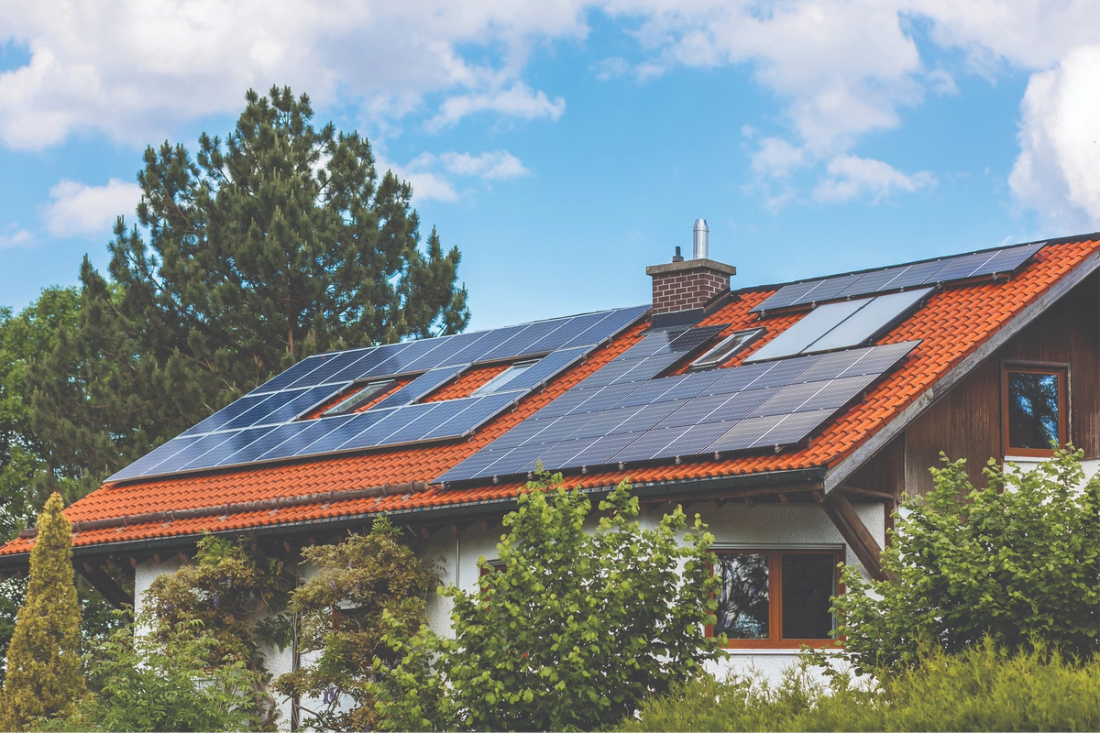Introduction
As the UK accelerates toward net-zero targets, compliance for renewable energy installations is more critical than ever. Both photovoltaic (PV) solar systems and heat pumps (HP) must adhere to strict regulatory frameworks, safety standards, and certification requirements. Compliance ensures system safety, reliability, efficiency, and eligibility for government incentives such as the ECO4 grant. This article provides an in-depth look at PV and HP compliance, the key standards and certifications required in the UK, practical guidance for installers, and how platforms like Reonic can streamline compliance management.
Understanding PV Compliance in the UK
PV systems must comply with several regulations to ensure safety, efficiency, and grid compatibility:
- MCS Certification: Microgeneration Certification Scheme ensures that solar panels, inverters, and installation practices meet recognised UK standards. Installation without MCS certification can result in ineligibility for incentives.
- Building Regulations Part P & Part L: Part P governs electrical safety in dwellings; Part L covers energy efficiency. PV systems must meet electrical and structural standards.
- IEC Standards: International standards (IEC 61215, IEC 61730) cover module design, performance, and safety, ensuring panels and inverters operate reliably.
- Grid Connection Compliance: PV systems must comply with Distribution Network Operator (DNO) requirements for export limits, anti-islanding protection, and safety disconnects.
- Environmental and Warranty Requirements: Modules, inverters, and batteries must be installed according to manufacturer instructions to maintain warranties and safe operation.
Compliance ensures homeowners benefit from performance guarantees, financial incentives, and reduced safety risks.
Heat Pump Compliance in the UK
Heat pumps are becoming the primary low-carbon heating solution for new builds and retrofits. Key compliance considerations include:
- MCS Certification: Installers must be MCS-certified to install heat pumps. Certification covers system sizing, installation quality, and commissioning.
- Building Regulations Part L: Specifies energy efficiency and carbon emission limits for heating systems in new and existing buildings. Heat pumps must meet seasonal coefficient of performance (SCOP) standards.
- Electrical and Gas Safety Regulations: For electrically driven heat pumps, Part P compliance ensures safe electrical installation; any hybrid systems with gas boilers must comply with Gas Safe regulations.
- Ecodesign Compliance: Heat pumps must meet the minimum efficiency levels set by EU Ecodesign regulations (SCOP ≥ 3.0 for air-source heat pumps).
- Integration with Renewable Energy Systems: Heat pumps combined with PV, batteries, and smart meters must meet interoperability standards to optimise energy use and efficiency.
Adhering to compliance standards reduces system failures, ensures energy savings, and qualifies homeowners for grants and incentive schemes.
Common Challenges in PV and Heat Pump Compliance
- Complex Regulations: UK rules are evolving; installers must navigate MCS, Part L, Part P, Ecodesign, and DNO requirements.
- System Sizing Errors: Oversizing or undersizing PV arrays or heat pumps can lead to inefficient operation and non-compliance.
- Documentation and Reporting: Proper commissioning reports, certifications, and handover documentation are required to demonstrate compliance.
- Integration Issues: Combining PV, heat pumps, batteries, and smart meters requires careful system design to comply with electrical and safety standards.
- Training and Skills: Lack of qualified installers increases risk of non-compliance. Ongoing training is essential.
Using platforms like Reonic, installers can manage compliance documentation, track certifications, and simulate system performance to avoid errors.
Practical Steps for Ensuring Compliance
For PV Installations:
- Verify modules and inverters are MCS-approved.
- Conduct structural assessments to ensure roof load capacity.
- Install anti-islanding and safety disconnects per DNO requirements.
- Maintain commissioning and inspection records for warranty and incentive eligibility.
- Use software to simulate PV output and compliance with Part L requirements.
For Heat Pump Installations:
- Complete accurate heating load calculations for SCOP and COP compliance.
- Ensure installer holds MCS certification and is up to date with training.
- Connect system to appropriate smart meters for energy monitoring.
- Commission the system according to manufacturer guidelines and document performance.
- Ensure hybrid or integrated systems comply with electrical and building regulations.
Benefits of Compliance Management Tools
| Feature | Benefit for Installers | Benefit for Homeowners |
| Digital Documentation | Streamlines MCS and Part L reporting | Peace of mind with full compliance records |
| System Sizing Simulation | Reduces risk of oversizing/undersizing | Optimised energy performance and savings |
| Workflow Automation | Ensures sequential compliance steps | Faster installation and commissioning |
| Smart Meter Integration | Monitors performance and energy efficiency | Real-time insights and potential incentive eligibility |
| Asset Management | Track warranty, service, and inspections | Reliable, long-lasting system |
Platforms like Reonic centralise PV and heat pump compliance workflows, reducing human error and accelerating regulatory reporting.
Case Study: Compliance in Practice
Scenario: A UK installer integrates PV with a heat pump in a new build home:
- PV modules and inverter selected are MCS-certified.
- Heat pump system designed with SCOP verification.
- Installation and electrical connections meet Part P and DNO standards.
- Smart meters installed to monitor energy use and self-consumption.
- Reonic platform used to store documentation, generate compliance reports, and track warranty.
Outcome: Full regulatory compliance, eligibility for ECO4 grant, improved energy efficiency, and client satisfaction.
Conclusion
Ensuring compliance for PV and heat pump installations is essential for safety, efficiency, and eligibility for incentives in the UK. Installers must navigate MCS certification, Building Regulations, Part P & L, Ecodesign standards, and grid connection requirements. Proper system sizing, documentation, and integration with renewable technologies are crucial. Platforms like Reonic help streamline compliance management, reduce errors, and optimise operational efficiency, enabling installers to deliver high-quality, compliant, and low-carbon energy solutions.
FAQ
Q1: What certifications are required for PV and heat pump installations in the UK?
MCS certification is mandatory for both PV and heat pump installations to ensure compliance and eligibility for incentives.
Q2: Do PV systems need grid approval?
Yes, PV installations must comply with Distribution Network Operator (DNO) requirements, including safety disconnects and anti-islanding.
Q3: What is SCOP and why is it important for heat pumps?
Seasonal Coefficient of Performance (SCOP) measures heat pump efficiency over a year. Compliance ensures optimal energy use and regulatory adherence.
Q4: Can PV and heat pumps be combined with smart meters?
Yes, integrating smart meters allows energy monitoring, performance optimisation, and eligibility for grants or schemes like ECO4.
Q5: What happens if installations are non-compliant?
Non-compliance can void warranties, disqualify homeowners from incentives, and pose safety or legal risks.
Q6: How can software platforms help with compliance?
Platforms like Reonic centralise documentation, track certifications, simulate system sizing, and automate compliance reporting.
Q7: Are installers required to have ongoing training?
Yes, UK installers must maintain MCS and relevant technical training to ensure systems are installed safely and comply with evolving regulations.
Q8: Does compliance improve system performance?
Yes, compliant installations are optimised for efficiency, reliability, safety, and long-term performance, benefiting both installers and homeowners.








